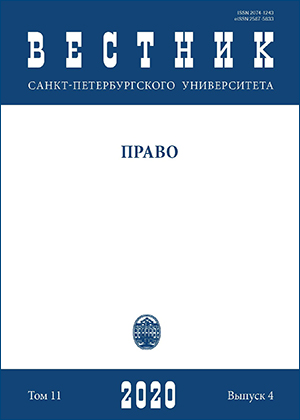Personalized agreement – a new contractual model
DOI:
https://doi.org/10.21638/spbu14.2020.411Abstract
In consumer e-commerce, personalization of the content of an agreement in accordance with expectations, traits and circumstances of a particular person has become a common practice. In order to adequately address this new phenomenon, it is crucial to determine how the legal system should perceive consumer contracts concluded via the Internet with the use of personalization tools. For this purpose, the European Union perspective is adopted. Peculiarities of personalized agreements are varied. The entrepreneur has access to a vast amount of data on consumers and he is able to use it to his benefit by personalizing means, time and content of communication sent while forming a contractual bond with the consumer. In contrast, the consumer is not familiar with the scope and the utility of the data that the trader is processing. Also, personalization practices are aimed at inspiring trust in the trader, which, in sum, make the consumer especially exposed to manipulation. As a result, the asymmetry between the parties deepens. Personalization can be, therefore, perceived as a marketing technique. However, due to its impact on the contractual relationship, it is justified to explore also whether it could be treated as a new type of contract or an emerging contractual model. The analysis suggests that the phenomenon should be considered as another step in the evolution of consumer contracts — personalization, to a certain extent, supersedes standardization of mass turnover in the online environment. The following article is a part of the research conducted within the framework of project no. 2016/21/N/HS5/00167, ‘Personalized agreements in the light of civil law’, grant financed by the Polish National Science Centre.
Keywords:
personalization, consumer law, e-commerce, big data, profiling, contracts, business to consumer, Internet, granular law
Downloads
References
Downloads
Published
How to Cite
Issue
Section
License
Articles of "Vestnik of Saint Petersburg University. Law" are open access distributed under the terms of the License Agreement with Saint Petersburg State University, which permits to the authors unrestricted distribution and self-archiving free of charge.






